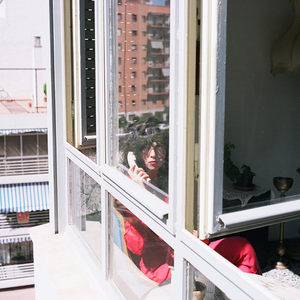
| Trackimage | Playbut | Trackname | Playbut | Trackname |
|---|---|---|---|---|
| 85958318 | Play | Moai Y Yo | 00:00 Tools | |
| 85958319 | Play | Uno De Tus Ojos | 00:00 Tools | |
| 86778754 | Play | Bosque De Bambú | 00:00 Tools | |
| 85958320 | Play | Jungla Inquieta | 00:00 Tools | |
| 85958321 | Play | Isla Magica | 00:00 Tools | |
| 85958322 | Play | Llamame | 00:00 Tools | |
| 85958323 | Play | Camino Desolado | 00:00 Tools | |
| 85958324 | Play | Playa Escondida | 00:00 Tools | |
| 85958325 | Play | Ciudad Desnuda | 00:00 Tools | |
| 85958326 | Play | Lapislazul | 00:00 Tools | |
| 85958327 | Play | Tarantula | 00:00 Tools | |
| 85958328 | Play | Una De Tus Ojos | 00:00 Tools | |
| 85958329 | Play | Llámame | 00:00 Tools | |
| 85958330 | Play | Isla Mágica | 00:00 Tools | |
| 85958331 | Play | Ciudad Desunda | 00:00 Tools | |
| 85958332 | Play | Lapizlazul | 00:00 Tools | |
| 85958333 | Play | Tarántula | 00:00 Tools | |
| 85958334 | Play | Jungla Inquieta (Jensen Sportag Remix) | 00:00 Tools | |
| 86778755 | Play | Mexico (una pirámide al revés) | 00:00 Tools | |
| 85958335 | Play | Uno De Tus Ojos (Tempelhof Remix) | 00:00 Tools | |
| 85958336 | Play | Moai Y Yo (Project Pablo Remix) | 00:00 Tools | |
| 85958337 | Play | Ciudad Desnuda (Kaazi's Inner City Garden Mix) | 00:00 Tools | |
| 86778756 | Play | Mexico - Una Pirámide al Revés | 00:00 Tools | |
| 85958338 | Play | Maoi Y Yo | 00:00 Tools | |
| 86778757 | Play | Bosque De Bambu | 00:00 Tools |

-
- 74,500
- plays
-
- 15,232
- listners
-
- 74500
- top track count
Maria Usbeck's solo debut, Amparo, is a collection of songs written and recorded across the span of three years in Ecuador, Buenos Aires, Santiago, Barcelona, Lisbon, Easter Island, Costa Rica, the south of Florida, L.A. and her home in Brooklyn. Though the songs were composed electronically, Amparo called for an acoustic treatment, so Usbeck spent a winter in the studio recording the arrangements live with producer Caroline Polachek and mixer and engineer Miles Benjamin Anthony Robinson. Fleshed out in full sonic color on the marimba, xylophone, quena flute, piano, and harp, the album stretched out into something hi-fi and expressive, meditative but not meandering. Amparo stems from Usbeck's desire to compose in Spanish, her native language. Growing up in Quito, Ecuador, Usbeck was immersed in salsa, merengue, bachata, and Andean music, but was more attracted to German and American culture than to her own, and moved to America by herself at 17. After five years of fronting new wave outfit Selebrities and writing songs in English, Usbeck experienced a delayed onset homesickness and knew it was time to "let the mother tongue speak." The impulse manifested itself directly: Amparo takes its title from Usbeck's middle name and her mother's name, and translates roughly as "to guide, protect, and embrace." Usbeck wields her Spanish lyrics cleverly while folding in snippets of several other far-flung tongues: Rapa Nui from Easter Island, Quichua from Ecuador, Bribri from Costa Rica, and Catalan. Because these lyrics were composed while visiting the countries from which they originate, their usage is more impressionistic than literal, like a mockingbird imitating fragments of other birdcalls. Similarly, Usbeck reinterprets the Ecuadorian music that she grew up with as a newcomer, returning home with fresh ears, and as such the sounds are very much her own. The backbone of Amparo is percussion, vibrating throughout with timbales, tumbas, a talking drum, bongos, shakers, and an Indian flat drum, with the gaps filled in by her field recordings of birds, beaches, and jungles. The songs were written and recorded chronologically, with the exception of the closing track, a cover of Colourbox’s “Tarantula” reimagined in Usbeck’s Spanish translation. Amparo is a reflection of the textures of Usbeck's childhood. It is also a distinctly grown-up pop record – a travel diary, music made by a visiting outsider to tap into a shared core of human expression. Emotively, Usbeck is at her most powerful on piano ballads "Uno De Tus Ojos" and "Jungla Inquieta," but is a magnetic narrator throughout, moving between whispers, chants, and lullabies. Amparo pulses with many stories in many voices, but they flow together seamlessly like water, leaving behind a wordless hum. Amparo is released May 27 via Labrador in Europe, Cascine in North America and Rallye in Japan. Read more on Last.fm. User-contributed text is available under the Creative Commons By-SA License; additional terms may apply.